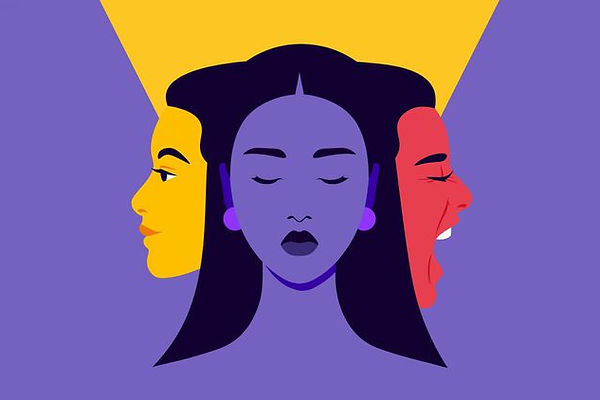
The Art of Acceptance: Transforming Negative Emotions into Self-Advancement
The Art of Acceptance: Turning Negative Emotions into Self-Advancement
Negative emotions can profoundly affect anyone, often leaving us overwhelmed by feelings such as sadness, anger, or regret. If we remain unaware of how these emotions influence us, we might overlook their impact on various aspects of our lives, including our relationships and physical health. Fortunately, with practice, anyone can learn to regulate their emotions and harness even the deepest feelings for personal growth and well-being.
Mindfulness is the foundational key to transforming negative emotions into opportunities for self-betterment. The goal of mindfulness is not to criticize ourselves for experiencing negative emotions but to view them as indicator lights rather than problems. Emotions are not inherently good or bad; they are signals that guide us toward understanding and growth. The next time you feel a negative emotion, pause to assess its origin and impact, and consider the following indicators:
1. Assess Physical Symptoms
Next time you experience a negative emotion, pause and ask yourself questions like: Is my heart racing? Am I feeling nauseous? Do I have a headache? These questions can help you pinpoint the ways emotions affect your body. For example, a consistently racing heartbeat when upset may indicate anxiety. Strategies such as breathwork and tapping can help manage this. Additionally, consider your recent sleep patterns and eating habits. Physical exhaustion or poor nutrition can amplify emotional symptoms. Being mindful of these indicators helps you to regulate your emotions productively, serving your well-being rather than hindering it.
2. Review The Narrative
We all create stories around our experiences with negative emotions. First, consider what you are saying about yourself. Do you find you think thoughts like, "I really messed that up," or "I can never get it right?" If so, reframe your thoughts into empathetic and compassionate ones, such as, "I can make adjustments and have a better outcome next time," or "I don't have to be perfect. The main thing is that I am willing to grow."
Likewise, examine the stories you tell yourself about others. If an argument occurs with someone you care about, it's tempting to allow your mind to fill the gaps with emotionally driven assumptions rather than facts. This is because our minds dislike uncertainty and can create a story, that can lead us to incorrect conclusions. Instead of allowing your thoughts to ruminate, pause and ask yourself questions that begin with "Is there a reason...?" This approach helps you give others the benefit of the doubt and maintain factual narratives. For example, "Is there a reason they were late?" or "Is there a reason they keep forgetting things at the grocery store?" This practice will help you not jump to conclusions, which has a positive impact on your relationships with those you love.
3. Remember The Power to Choose
When it comes to emotions, we are often tempted to react impulsively rather than respond thoughtfully. For many, lashing out might provide a momentary sense of relief, but this is usually followed by regret and relational damage. By taking the time to practice responding instead of reacting, we gain more control over ourselves and the situation than we initially realized. This process requires patience, so it's important to be kind to yourself while learning to make better choices. Seeking help from a friend skilled in emotional regulation or consulting a counselor can also be beneficial.
We do not have to be slaves to our emotions, nor should we dismiss them as nonvaluable. By becoming aware of what our feelings indicate, we can choose to respond deliberately and constructively, enhancing our health and relationships. This mindful approach empowers us to live more productively, leading to a well-rounded and fulfilling life.
*As always, this is for informational purposes only. It is not a substitute for professional medical advice, diagnosis, or treatment. Always seek the advice of your physician or other qualified healthcare providers with any questions you have regarding a medical condition. AND before undertaking any diet, dietary supplement, exercise, or other health program.


